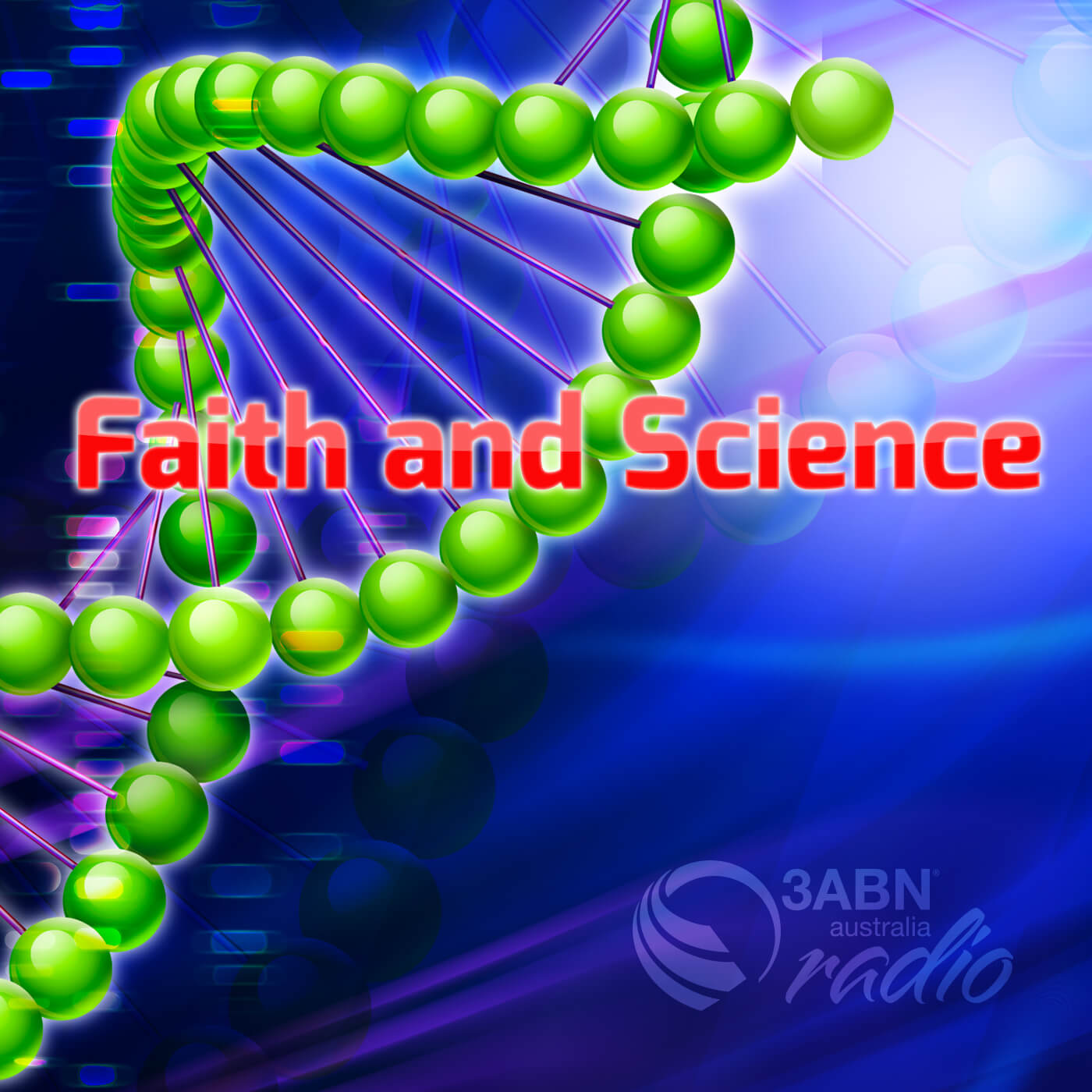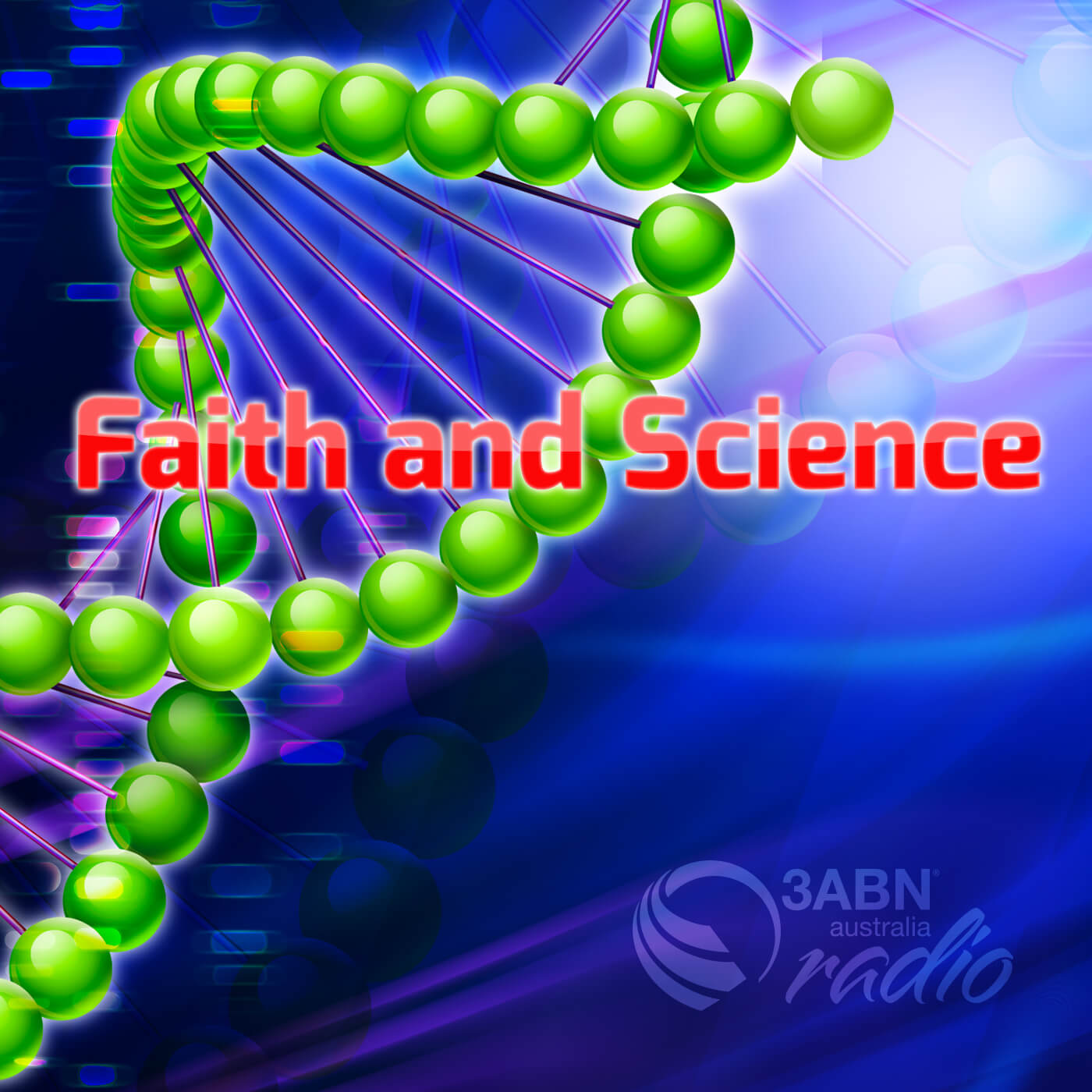Episode Transcript
Welcome to faith and science. I'm doctor John Ashton. The other week I was talking with a friend and she was telling us of an interesting experience that she had.
She'd done her grocery shopping and she got home, was unpacking her groceries. She had this really strong impression that there was something wrong with this jar of jam that she'd bought. And the impression was so strong that she decided to open the jar of jam and remove the contents, take the contents out and have a look at them.
Like, she opened it and smelled. Smelled all right, and everything. And as she was pouring the contents tents out and getting them out with a utensil, she found a piece of glass in the jar in the jam.
I thought, that's really, really interesting. And out of the hundreds of jars of jam that she'd bought over her lifetime, this particular time, she felt so impressed to have a look at that jam, you know, and it reminded me of another time, and I've had other instances as well. But one time when I was about to go on a caravanning holiday, and on the night before, I had this really strong impression to cheque the wheel nuts on the caravan.
And I'd already actually got ready for bed. And the impression was so strong that I went and got my spanner kit that was in my study nearby and took it down and put it by the door so that I would remember to do that. And when I went out in the morning, before we were leaving, and I checked the wheel nuts, there were some loose wheel nuts on the wheel.
And again, you know, for, you know, driving. I've been driving over 50 years now, but I would have been driving at least 40 years. I'd never had that impression before, to go, just go and cheque the wheel nuts randomly.
And so it's very interesting where these thoughts come from, as I've talked about this before. But also one of the things that reminded me as I thought about this was that a number of major scientific discoveries have come where people have had impressions to try something to do. This thought has come into their mind and it's led to a major breakthrough.
Some of these thoughts have been in dreams, for example, and thoughts like this were associated, for example, with the discovery of insulin, the discovery of the periodic table pattern, the discovery of oil fields in Arabia, when explorers felt very strongly that from the geology, they should be there. One night, one of the geologists had this really strong impression to go and test this particular area. And it's made me think of a number of things, too.
When we look at history the ancient peoples, many ancient people are very clever. We know the amazing pyramids that were built, the architecture in ancient Greece, the greek scholars, the development of mathematics. But it was interesting that it was after the.
Pretty well after the protestant revolution that science really began to take off. And two things happened after that time. There was an intense spread of Christianity in the world, and later, and gradually more and more missionaries went out.
And it seemed that as that occurred, at the same time that, in my view, God revealed things to people, inspired thoughts, where they made scientific discoveries. And many of the great scientific discoveries were actually made by christians. And this is a fascinating area, because when we look at, you know, the evolutionary theory talks about how our brain and so forth evolve.
It has no explanation for the mind. For the mind is the non material part. But it's interesting that the mind seems, is largely controlled in the frontal lobe area of the brain.
Now, of course, the main part of the brain, the cerebrum, the large part of the brain, is divided into the four hemispheres. And of course, we've got. Each hemisphere is again divide into two halves, but each one is divided.
Each half has four areas, so it's divided into these four lobes. And so we've got the frontal, the temporal, the parietal and the occipital lobes. And it's interesting, the frontal lobe is associated with the executive sort of functions, making decisions, including, you know, self control, planning, reasoning, abstract thought, all these sort of things, whereas the other things, like the occipital lobes, decayed division and so forth.
And there are other functions of the other lobes. But this frontal lobe is the one that really separates Mandev in humans from the others in the animal kingdom. And, for example, if we look at cats, well, let's go to humans.
In humans, the frontal lobe makes up 33% of that brain, area of our brain. And if we look at the area of the frontal lobe, for example, in other higher animals, like cats, three and a half percent, dogs, about six or 7%, and monkeys that the evolutionists claim were the step before humans is only 17%. So there's a big difference.
And there was a very interesting event that occurred back in the 18 hundreds. I think in about the mid 18 hundreds, there was a. As they were building railroads in the United States, there was a foreman who was working with his crew by the name of Phineas gauge, and he was preparing to do some blasting.
And as he tampered down the charge in a hole, it went off and it sent the iron bar up through his head. It actually entered in through his eye and went out through the, through the top of his skull. And essentially, it wiped out most of the frontal lobe of his brain.
Now, he lived, he survived. Matter of fact, after the accident, he was walking around talking to people and so forth. But it's interesting, he changed, and he changed from a very compassionate man, a man who got on very well with his team.
He was a great foreman. He was really, his employer, thought he was a really, really great foreman. He changed to become very animalistic.
He became fitful, had lack of restraint. As a matter of fact, he changed more or less to be more like behaving like an animal. And so this led, of course, to some very, very interesting research and conclusions there.
And when we look at the evolution story and the claim that the brain evolved, there's no real explanation for why humans would have evolved this large part of brain. But if we were created, of course, there's a very, very good reason for this, because this seems to be the area of the brain that really connects us with God, with the supernatural, with the other reality of what, you know, God is all about the non material existence. And the other aspect, of course, is too, when we look at the brain, when we look at these structures of the brain, how they're interconnected, the different roles.
To think that as evolutionary claims, that these amazing structures evolved by random chance blind mutations to a DNA code, we can see it's absolutely impossible. Random blind mutations to a DNA code made up of four chemicals that we abbreviate, a, c, t and ghennae, random changes to those chemical compounds and the order that they're in, in a molecule. You can't synthesise new sections of DNA by random chance chemical mutations to produce these amazing structures that are in the brain.
And of course, the brain is amazing. You know, when we think of all the cells, the brain cells themselves, the neurons, these are the functional cells that make up the, the matter in our brain. And their structure in themselves is extremely complex with dendrites.
And then we've got the support of Guill cells and we've got micro gea, we've got the oligodendrotes, we've got the myelin sheath, we've got synapsis, we've got orients, we've got astrocytes. And when we think, of course, in our brain, there's about 85 million neuron cells and there's equivalent number of other supportive cells in the brain as well. And when we think of the structure of these cells, the interconnections of these cells, the wiring that is connected to all the different nerves that are associated through our body, that run all the different aspects of our muscles and our body functions that control the biochemistry, regulate the biochemistry when we think, okay, we've just talked about the four main lobes, but of course, underneath there are these other structures, the thalamus, the epithalamus, the pineal gland, the hypothalamus, the pituitary gland, the some thalamus, the limbic structures, including amygdala and the hippocampi and the claustrum.
And there's also a whole lot of different types of nuclear of the basal ganglia as well, and the basal forebrain structures. And then there's three circumventular organs. To have this amazing structure that functions together in harmony, all these different pieces to arise by blind, random chemical mutations, chemical changes to the DNA we can see, is absolutely impossible.
It's not going to happen. It's never going to happen. And so we have overwhelming evidence from the structure of our brain that it could not possibly evolve.
And then I think we have also the overwhelming evidence of inspiration, of supernatural inspiration, of thoughts coming from somewhere else or communication from somewhere else. And of course, that's what the Bible claims, too. The writers of the Bible claimed that they were inspired by God.
The thoughts that were written in the Bible came to their mind supernaturally to write down the laws that God, who our creator, wanted us to live by. And it also makes common sense that if our creator created us, surely he can communicate with us as well. And that communication, as recorded in the Bible, sets out that the creator is a loving creator who wants to actually have a relationship with us.
And he demonstrated his love by coming in human form as Jesus Christ and performing those miracles in front of witnesses, such as raising the dead, healing the blind, healing crippled, healing deaf people, performing public miracles to show that this was, again, supernatural events that were happening and pointed to him as being the creator. You've been listening to faith and science. And remember, if you want to relisten to these programmes, just google three abnaustralia.org,
dot au and click on the radio button. And these programmes are here. And there are many, many other programmes that are listed there that you can listen to on different topics.
And please also mention these programmes on your social media pages and to your friends that they're available. That we have overwhelming evidence that evolution did not occur, overwhelming evidence for a supernatural creator God. And that in turn gives us overwhelming evidence that there is a purpose for our lives.
I'm Doctor John Ashton. Have a great day. You've been listening to a production of 3ABN Australia radio.


